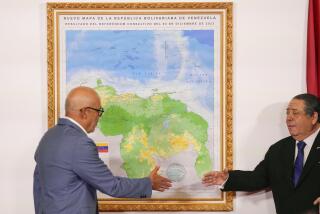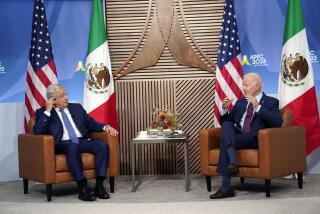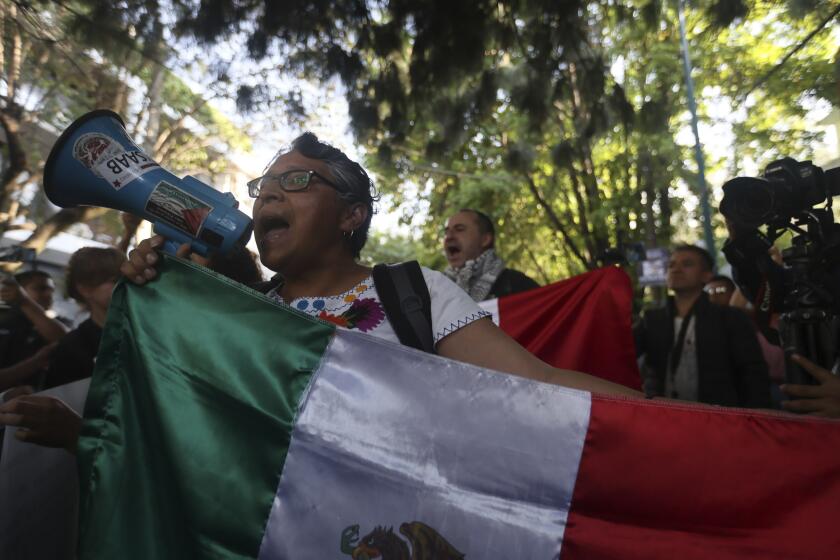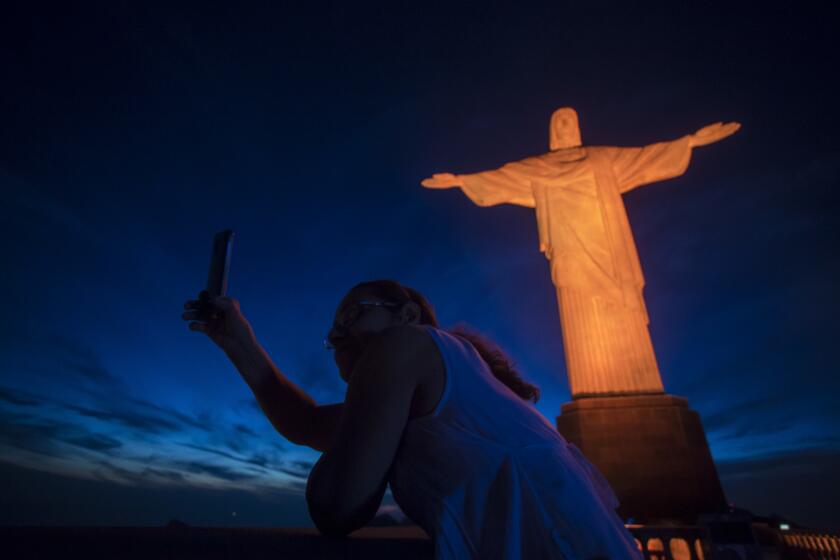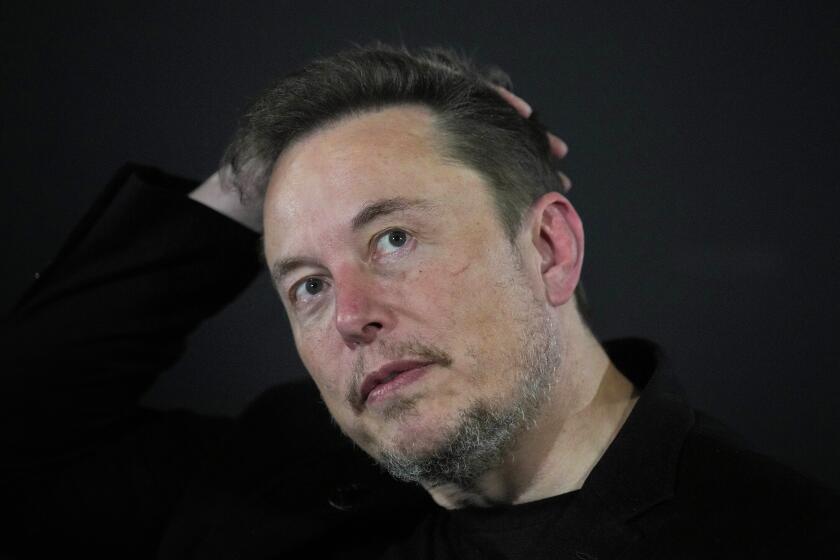U.S. optimistic about next round of talks with Cuba, set for Thursday
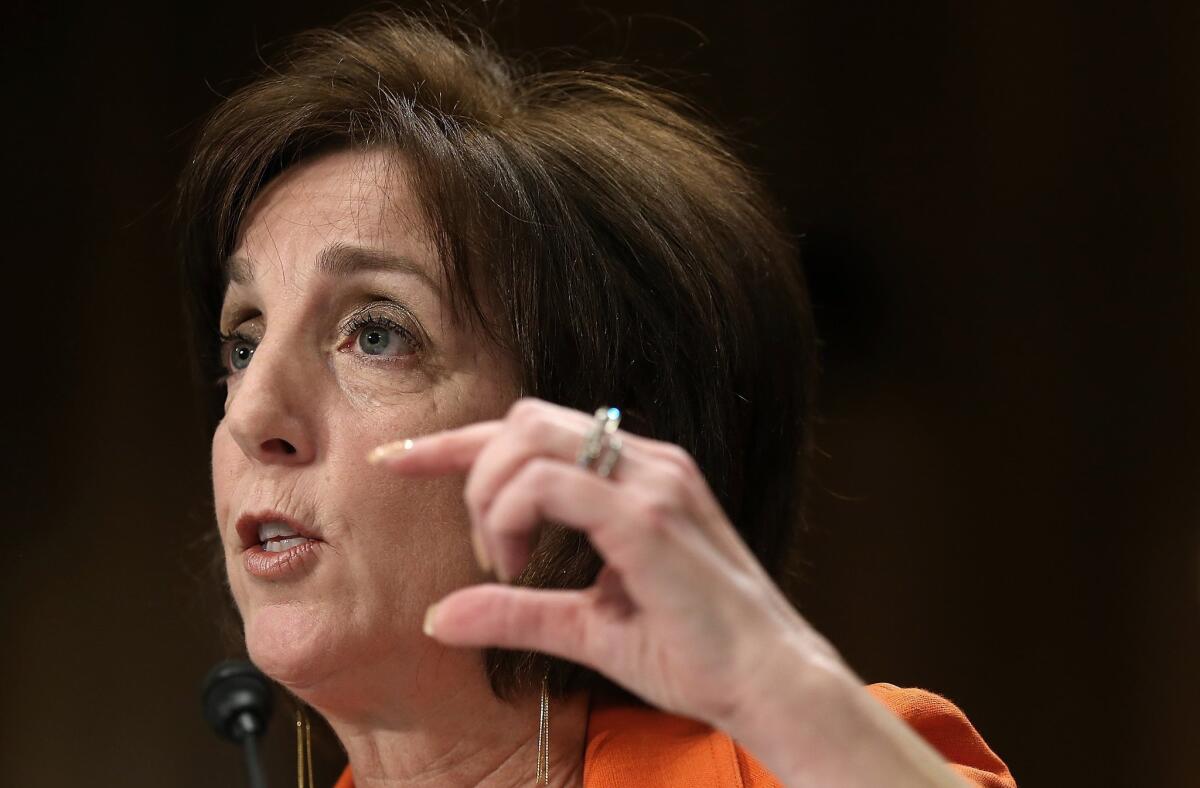
Assistant U.S. Secretary of State for Western Hemisphere Affairs Roberta Jacobson testifies before the Senate Foreign Relations Committee in Washington.
The U.S. and Cuba on Thursday head into a fourth round of talks aimed at renewing diplomatic ties after more than half a century of hostile estrangement and bolstered by the historic meeting of Presidents Obama and Raul Castro on the margins of the Summit of the Americas in Panama in April.
A senior U.S. State Department official, briefing reporters this week on condition of anonymity, was especially upbeat about progress. Cuba also sent positive signals, with one official going so far as to suggest that this week’s meeting, which will take place in Washington, could be conclusive.
Restoring full diplomatic relations would lead to the opening of embassies in both capitals, and the exchange of ambassadors, possibly as early as this summer.
Although other complicated steps would remain for a complete normalization of relations, embassies and ambassadors would mark a highly symbolic and significantly substantive shift in the two countries’ fraught dealings.
“I’m trying not to sound too Pollyannaish as I go into the fourth” session, the senior State Department official said. “But I do think we’re closer than we have been in the past, and I think my counterparts are coming up here with a desire to get this done.”
Here are some of the key issues, and where they stand in terms of resolution:
Terrorism list
Obama last month announced he would remove Cuba from the list of states the U.S. believes sponsor terrorism. That opened a 45-day period in which Congress can oppose the move. The deadline falls on May 29. The State Department official said she knew of no organized opposition from Congress thus far, making it likely Cuba will be off the list soon.
From the Cuban perspective, inclusion on the list, which Havana considered unfair, was a major stumbling block to advancing relations. Castro said this month that once off the list “we’ll be able to name ambassadors.”
Obama is expected to give Congress a 15-day notification that the diplomatic mission in Havana will be upgraded, the State Department official said.
Banks
The U.S. placed Cuba on the terrorism sponsor list more than 30 years ago because of Havana’s global support for revolution and sometimes violent leftist causes. In practical terms, the status complicated Cuba’s ability to administer its Interests Section (the entity that stands in for an embassy when countries don’t have diplomatic ties) in Washington and its mission at the United Nations because banks were loath to deal with a blacklisted country.
Now, however, Cuba has found a bank willing to work with it, thanks to the imminent removal from the terrorism list. The State Department official made this announcement but declined to identify the bank.
In Havana, Gustavo Machin, deputy head of American affairs in the Cuban Foreign Ministry, said the combination of being removed from the list and the securing of a bank had created “the right bilateral context to move forward.”
“We don’t see obstacles, just questions to resolve and discuss together,” Machin said Monday at a news conference. He would not predict a time frame for reaching agreement but suggested that Thursday’s meeting could be the last.
Embargo
Ending the commercial and economic embargo the U.S. placed on Cuba during the Eisenhower administration is another key demand from Havana. Obama has expressed his desire that the embargo be lifted, saying its goal of forcing change in the Cuban political system has not worked. He can take, and has taken, some measures to loosen its restrictions, such as easing travel by U.S. citizens to the island, but only an act of Congress can end the embargo altogether. That does not seem likely in the near future.
Democracy programs
One area in which the two sides still disagree are the so-called democracy programs that the U.S. sponsors in Cuba. These have included training of journalists recently and efforts such as distributing computer equipment to dissidents, the purported reason that landed U.S. Agency for International Development contractor Alan Gross in prison in 2009. (Gross was released in December when Obama and Castro made their historic declaration that the two countries were beginning a process of rapprochement.)
Castro, speaking last week, referred specifically to the journalist training, which takes place in the U.S. Interests Section in Havana, as illegal.
It is part of the larger issue of how diplomats may conduct themselves in the country to which they are posted, governed by the Vienna Convention. Havana and Washington seem to have different interpretations of the convention.
The U.S. wants its personnel to be allowed to travel freely throughout Cuba and for Cuban citizens to have unfettered access to U.S. diplomatic offices, which are carefully watched by Cuban security agents. The Castro government has resisted such moves, accusing the U.S. of attempting to mettle in the island’s internal affairs. (U.S. diplomats are restricted to Havana, and Cuban diplomats to Washington.)
The State Department official said the U.S. would continue to sponsor the democracy programs, but she acknowledged that they could be adjusted “to reflect a reality, whether that reality is on the ground in Cuba or in the United States.” She noted that Cubans have more freedom to travel since Castro ended an exit visa requirement.
“I think we always have to be cognizant of making sure that when we are supporting the Cuban people, we’re doing it in a way that is the most effective,” the official said. “I think we have to be careful not to ever have thought that those programs were static and separate from changes in the environment in which they’re working.”
What’s not on the table — for now
There are matters of great importance to each side that the diplomats will not be talking about.
Havana is demanding that the U.S. naval base and military prison at Guantanamo Bay, Cuba, be closed and the land, which the U.S. controls, be returned to Cuba. The topic “is not on the table,” the State Department official said.
Washington wants to see the extradition of several fugitives who were given haven on the island decades ago, including Assata Shakur, convicted in the 1973 killing of a New Jersey state trooper. The former Joanne Chesimard escaped from prison and fled to Cuba, where she has lived ever since. Cuba has said flatly it will not consider the extradition of fugitives it considers to be political exiles.
And this week, Sen. Marco Rubio of Florida, a Republican presidential candidate, introduced a bill that would require Cuba to pay billions of dollars in claims over seized property before the easing of restrictions on travel and trade could advance. Cuban officials have generally said this is a non-starter, especially because so many of the claims are so old.
Twitter: @TracyKWilkinson
More to Read
Start your day right
Sign up for Essential California for news, features and recommendations from the L.A. Times and beyond in your inbox six days a week.
You may occasionally receive promotional content from the Los Angeles Times.

